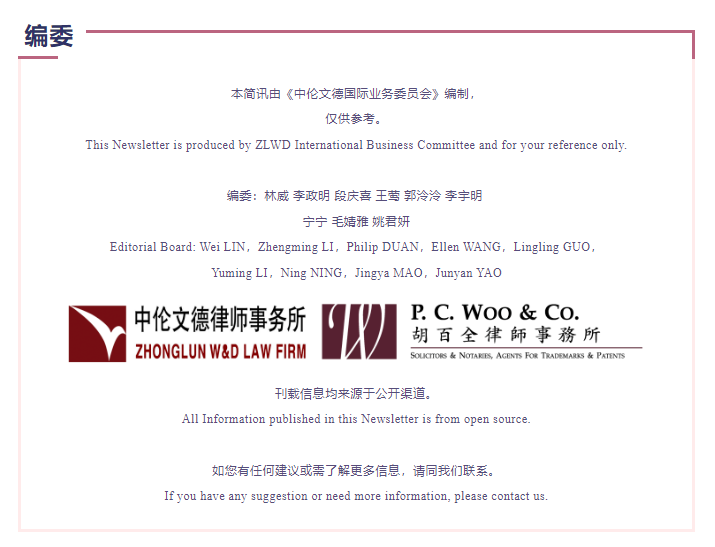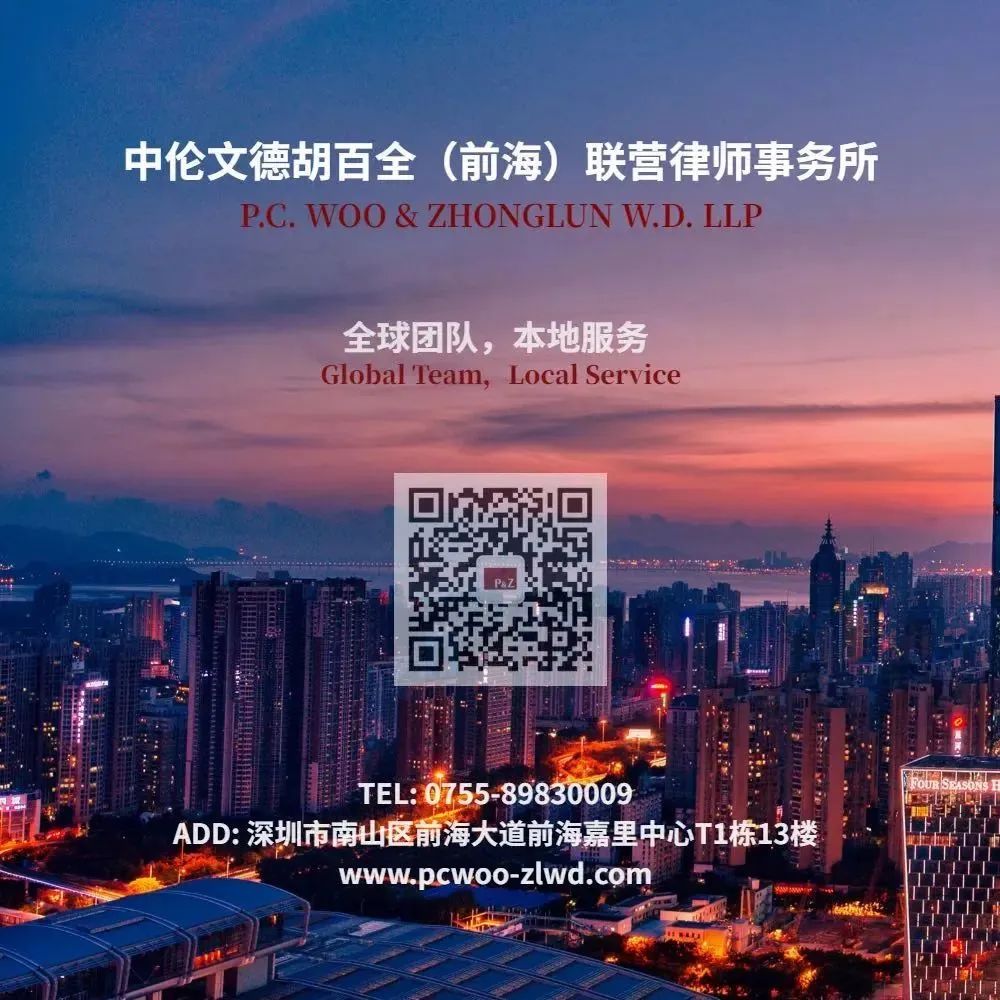
NEWS

NEWS

Ministry of Justice Holds Pilot Conference on Construction of International Commercial Arbitration Center in Shanghai
In order to establish a new global hub for international commercial arbitration, the Ministry of Justice convened a pilot conference on April 9th in Shanghai to advance the construction of the International Commercial Arbitration Center. The meeting aimed to review and exchange progress reports from various pilot regions and to outline the next steps for the pilot program.
It was reported that in July 2022, the Central Committee for Comprehensive Governance by Law initiated pilot projects for the construction of international commercial arbitration centers in Beijing, Shanghai, Guangzhou of Guangdong Province, Shenzhen, and Hainan Province. These projects aimed to support the establishment of internationally reputable and influential arbitration centers, fostering a group of top-tier international arbitration institutions, and enhancing the quality of international commercial dispute resolution services.
"Party committees and governments in the pilot regions have attached great importance to these efforts, effectively coordinating work and ensuring the implementation of various tasks, resulting in significant progress," noted the relevant officials from the Ministry of Justice. "We must deepen our understanding and implementation of the decisions made by the Party Central Committee, enhance our sense of mission and responsibility, and accelerate the development of a new framework for the international commercial arbitration centers that is both strategically laid out and characterized by distinct features. Our aim is to position China as a premier global destination for international commercial arbitration."
Data from 2023 indicates that the eight arbitration institutions in the pilot regions collectively handled 79,000 cases with a total subject matter value of RMB 600 billion, representing 52% of the nation's total subject matter. Furthermore, these institutions concluded 2,251 cases involving foreign parties, accounting for 72% of the country's total foreign-related cases, with a combined subject matter value of RMB 137.6 billion, constituting 69% of the nation's total foreign-related subject matter.
Japan Officially Enforces the Singapore Mediation Convention Implementation Act
On April 1, 2024, the Singapore Mediation Convention officially took effect in Japan, accompanied by the enactment of a corresponding domestic law, namely the "調停による国際的な和解合意に関する国際連合条約の実施に関する法律 (Act on the implementation of the United Nations Convention on International Conciliation Agreements through Mediation)" (Law No. 16 of the Fifth Year of Reiwa). This law defines mediation and international settlement agreements, specifies the scope of application and exclusion, outlines the procedures for applying for enforcement and the competent courts, as well as circumstances under which enforcement may be denied.
Under the new law, a party seeking enforcement is required to submit relevant documents to the court, including the content of the international settlement agreement and the mediator's records. The court will review these documents based on specific criteria and issue an enforceability order if the conditions are met. Additionally, the court must provide a written judgment stating the main contents and relevant party information.
The implementation of this law aims to comprehensively strengthen Japan's dispute resolution system, particularly the system managed by private dispute resolution entities, reflecting Japan's aspiration to become a hub for international dispute resolution. It is noteworthy that Japan has signed the Singapore Mediation Convention, although it has yet to be ratified by the National People's Congress. The timing of ratification and its entry into force in our country, as well as the specifics of its implementation, have become key points of interest for our colleagues. Furthermore, Japan's implementation practices and experiences serve as valuable lessons and references for our country's future relevant policies.
Johannesburg Arbitration Week 2024 Proceeds as Scheduled
From April 9th to 11th, 2024, the inaugural Johannesburg Arbitration Week (JAW), hosted by the Arbitration Foundation of Southern Africa (AFSA) and co-organized by the China-Africa Joint Arbitration Center (CAJAC) along with several other international dispute resolution institutions, took place in Johannesburg, South Africa. This edition of the Johannesburg Arbitration Week focused on topics such as the African Continental Free Trade Area, the advancement of arbitration in Africa, investment protection within the Southern African Development Community (SADC), the enforcement of arbitral awards in Africa, and China's business investments in South Africa. The event attracted over 400 participants from various countries and regions across Africa and other continents, representing the legal, business, academic, and governmental sectors.
Representatives from domestic arbitration institutions such as the Beijing Arbitration Commission/Beijing International Arbitration Center (BAC/BIAC), the Shanghai International Arbitration Center (SIAC), and the Shenzhen International Arbitration Court (SIAC) also attended the "Johannesburg Arbitration Week 2024" in South Africa.
Intermediate People's Court of Nanjing, Jiangsu Province:
If the arbitration agreement only stipulates resolving disputes through expedited arbitration without specifying the arbitration institution, the interim arbitration tribunal shall render the award
Legal Basis:
“Civil Procedure Law of the People's Republic of China ” (Amended in 2023)
Article 298
Where a judgment or ruling made by a foreign court which has come into legal effect requires recognition and enforcement by a people's court, a party may apply directly to the intermediate people's court which has jurisdiction for recognition and enforcement, or the foreign court may, pursuant to the provisions of the international treaty concluded or acceded to by the country of the foreign country and the People's Republic of China or under the principle of reciprocity, request for recognition and enforcement by the people's court.
“United Nations Convention on the Recognition and Enforcement of Foreign Arbitral Awards ”(New York Convention, 1958)
Article V
(b) The party against whom the award is invoked was not given proper notice of the appointment of the arbitrator or of the arbitration proceedings or was otherwise unable to present his case; or
(c) The award deals with a difference not contemplated by or not falling within the terms of the submission to arbitration, or it contains decisions on matters beyond the scope of the submission to arbitration, provided that, if the decisions on matters submitted to arbitration can be separated from those not so submitted, that part of the award which contains decisions on matters submitted to arbitration may be recognized and enforced; or
(d) The composition of the arbitral authority or the arbitral procedure was not in accordance with the agreement of the parties, or, failing such agreement, was not in accordance with the law of the country where the arbitration took place.
Case Description:
On May 17, 2013, Nanjing Changli Bee Industry Co., Ltd. (hereinafter referred to as "Changli Bee Company") and SvenskHonungsforadlingAB (hereinafter referred to as "Svensk Company") entered into an English version of a honey sales contract numbered NJRS13001 (hereinafter referred to as the "Contract"). The dispute resolution clause of the Contract stipulated: "in case of disputes governed by Swedish law and that disputes should be settled by Expedited Arbitration in Sweden." During the performance of the Contract, a dispute arose between the parties over the quality of the honey.
On February 23, 2015, Svensk Company applied to the Arbitration Institute of the Stockholm Chamber of Commerce in Sweden for arbitration against Changli Bee Company as the respondent, seeking compensation. The Arbitration Institute issued Arbitral Award SCCF2015/023 on December 18, 2015, rejecting Svensk Company's application on the grounds of lack of jurisdiction.
On March 22, 2016, Svensk Company again applied for ad hoc arbitration in Sweden against Changli Bee Company regarding the Contract in question. During the arbitration review, the ad hoc arbitral tribunal and the Stockholm District Court sent relevant materials to Changli Bee Company and its legal representative. However, as of May 4, 2017, the ad hoc arbitral tribunal had only received two emails from Changli Bee Company stating that no arbitration clause had been agreed upon in the Contract and that Swedish law should not apply. Subsequently, the ad hoc arbitral tribunal received submissions from Changli Bee Company's counsel regarding objections to the jurisdiction of the arbitral tribunal and a request for an extension of time to submit the statement of defense.
On March 5th and 6th, 2018, the interim arbitral tribunal organized a hearing for both parties. During the hearing, the representative of Changli Bee Company no longer objected to the jurisdiction of the arbitral tribunal, and Zhao Shangsheng, the legal representative of Changli Bee Company, did not raise any corresponding objection. The interim arbitral tribunal made an arbitral award on June 9, 2018, based on the Swedish Arbitration Act: 1. Changli Bee Company breached the Contract and should pay US$286,230 and corresponding interest to Swansco; 2. Changli Bee Company should pay compensation of SEK781,614 and HK$102,718.45 to Swansco.
On November 22, 2018, Swansco applied to the Nanjing Intermediate People's Court of Jiangsu Province for the recognition and enforcement of the said arbitral award. During the Court's review, both parties considered that the arbitration clause in the Contract should be understood in accordance with Swedish law. Swansco argued that the Chinese meaning of the dispute resolution clause was “If any dispute arises, Swedish law shall apply and it shall be resolved through expedited arbitration in Sweden.” Changli Bee Company, on the other hand, understood the clause to mean that “disputes governed by Swedish law shall be resolved by expedited arbitration in Sweden.”
Court’s View:
The Court concluded that, based on the established and determined facts, the arbitral award rendered by the Swedish Provisional Arbitral Tribunal in question did not fall into the non-recognition and non-enforcement situations stipulated in Article V, Paragraph 1, Subparagraphs (b), (c), and (d) of the Convention on the Recognition and Enforcement of Foreign Arbitral Awards, nor did it violate the provisions of the reservations made by our country upon accession to the Convention, or the public policy of our country, or the incapacity of arbitration to resolve the dispute, and thus it should be recognized and enforced. Therefore, the award should be recognized and enforced. Regarding whether the procedure of the interim arbitral award was inconsistent with the arbitration agreement. The dispute concerned the parties' understanding of the dispute settlement clause in the Contract "in case of disputes governed by Swedish law and that disputes should be settled by Expedited Arbitration in Sweden ...". From the parties' expression of the Chinese meaning of the clause, it appeared that the parties had no objection to the settlement of disputes by expedited arbitration in Sweden, but only disputed whether the expedited arbitration could be settled by ad hoc arbitration. Expedited arbitration is more efficient, convenient, and economical compared to ordinary arbitration, the core of which lies in the simplification of arbitration procedures, shortening of arbitration time, lowering of arbitration costs, etc., thus enabling the parties' disputes to be resolved in a more efficient and economical manner. The ad hoc arbitration tribunal is also characterized by high efficiency, convenience, and economy in comparison with the permanent arbitration institution. Specifically to this case, the parties agreed to resolve the dispute through expedited arbitration, but the expedited arbitration does not exclude the way through the interim arbitration, the parties in the arbitration hearing process also did not object to the interim arbitration, in this case, the interim arbitral tribunal to make the award, in line with the consent of the parties. Therefore, it should be recognized that the dispute in question was dealt with through the interim arbitration tribunal, and there was no inconsistency with the arbitration agreement.
To sum up, given that the arbitral award made by the Swedish interim arbitral tribunal did not have the circumstances of non-recognition and non-enforcement as stipulated in Article V(1)(b), (c), and (d) of the 1958 New York Convention, nor violated the provisions of the reservation made by China upon accession to the Convention, or violated China's public policy or the disputed matters could not be resolved by arbitration, the Intermediate People's Court of Nanjing Municipality in Jiangsu Province ruled that the arbitral award should be recognized and enforced.
UK Court: States Cannot Claim Immunity at ICSID Award Recognition Stage
Case Description:
Plaintiff Border Timbers Limited and Hangani Development Co. (Private) Limited (hereinafter referred to as the "Plaintiff") had their land in Zimbabwe expropriated. They initiated arbitration against defendant Zimbabwe Government (hereinafter referred to as "Zimbabwe") before ICSID. On July 28, 2015, the Arbitral Tribunal rendered a decision ordering Zimbabwe to pay the Plaintiff approximately US$124 million plus interest, US$1 million in moral damages and costs. Zimbabwe sought to set aside the award under the ICSID Convention procedures. The application was rejected by the ICSID Revocation Committee on November 21, 2018, with costs awarded against Zimbabwe. As the award remained unfulfilled, on September 15, 2021, the Plaintiff applied to the English Court (hereinafter referred to as the "Court") to recognize the award as an English judgment under the Arbitration (International Investment Disputes) Act 1966 (hereinafter referred to as the "1966 Act") and Civil Procedure Rules (CPR) 62.21. This application was approved by Justice Cockerill on October 8, 2021, and the award was recognized on par with a final High Court judgment. Justice Cockerill's recognition order was served on Zimbabwe on May 27, 2022. On July 25, 2022, Zimbabwe applied to the Court to annul the order, citing the State Immunity Act 1978 (hereinafter referred to as the "1978 Act"), claiming immunity from English court jurisdiction. In response, the Plaintiff argued that Zimbabwe did not enjoy immunity under the exceptions outlined in sections 2 and 9 of the 1978 Act, as it had acceded to the ICSID Convention and agreed to submit the dispute to ICSID arbitration, thus forfeiting immunity from English proceedings related to that arbitration.
Court’s View:
The Court determined that under the ICSID Convention, a state's waiver of immunity must be explicit, clear, and unambiguous. While Zimbabwe had waived its immunity concerning recognition and enforcement of the award, this didn't grant English courts jurisdiction based on sections 2 and 9 of the 1978 Act. A waiver under section 2 must pertain to a specific jurisdictional proceeding, while ICSID Convention Article 54(1) provides a generalized waiver, insufficient for the court's jurisdiction. Likewise, according to section 9 of the 1978 Act, the court can only act if it recognizes a specific arbitration agreement, which the plaintiff failed to prove. Consequently, section 9 didn't apply. Lastly, the Court noted the applicant's right under section 1(2) of the 1966 Act to apply for registration of the award (in order to obtain recognition), subject to procedural constraints, an administrative act by English courts. Contrarily, under CPR 62.21, a state that is a party to an ICSID arbitral award is not required to participate in the registration stage of the proceedings, which is concerned only with the recognition of the award, it is only at the stage where the applicant seeks to enforce the ICSID arbitral award that the state is formally brought before the courts, and it is only at that point that the question of state immunity is examined. Accordingly, the English Court ruled that Zimbabwe was not entitled to apply for a cancellation of the recognition order on the basis of State immunity.


